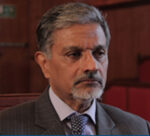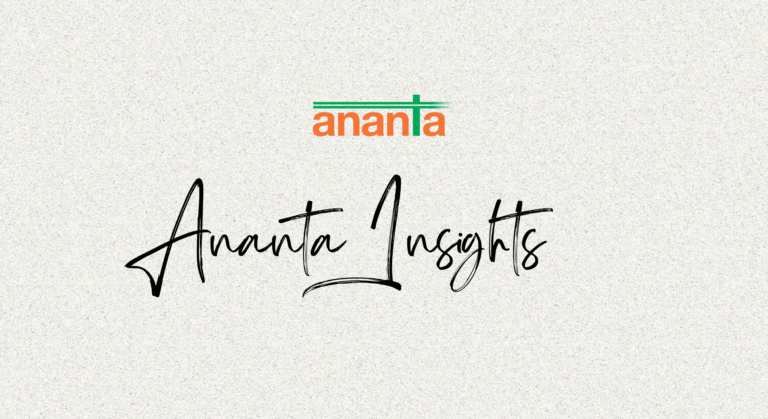Political Developments:
Mexico made history on 2 June by electing its first woman President. Claudia Sheinbaum, candidate for the MORENA Party of outgoing President Andres Manuel Lopez Obrador (AMLO), won close to 60 percent of the vote, giving her a lead of about 30 percentage points over Ms Xóchitl Gálvez of the combined opposition. Dr. Sheinbaum will be sworn in on 1 October. She comes with high academic qualifications and an impressive CV, including membership of the Nobel Peace Prize winning Intergovernmental Panel on Climate Change. From 2018-23 she was the first female mayor of Mexico City. Media and opponents have attempted to label her as an acolyte of AMLO, who her detractors claim will be pulling the strings from behind. Elections were held simultaneously to 500 seats of the Chamber of Deputies, and all 128 of the Senate. MORENA won 202 of the seats in the Chamber and 57 in the Senate, more than the total of the other two major political parties – PAN and PRI – which alternated power in Mexico for decades till six years ago. This supermajority will enable the party to advance its policies with greater vigour and strengthen the left in Latin America. MORENA also won most of the nine governorships up for election and retained Mexico City.
The principal challenge to any Mexican government, however remains the violence perpetrated by the drug cartels which hold considerable power all over the country. In the 2021 mid-term election 36 candidates for various posts were murdered. This year the number rose to 38. There were also 828 non-lethal attacks on candidates. 560 candidates and election officials had been given security guards by the government due to persistent threats. There is also the issue of institutional independence, with AMLO accused of weakening the electoral commission and the judiciary. The announcement that the government would persevere with constitutional amendments, including election of judges by popular vote; elimination of autonomous oversight institutions and regulatory bodies; eliminating plurinominal candidates in Congress, resulted in a fall of 8 percent by the Mexican Peso and a sell-off in the stock market. Statements by the party helped to calm matters, but the new president will have to tread warily.
Mexico is a vital emerging country, a member of the G20 and OECD, serving as a hinge between Latin and North America. This has created problems, with illegal immigrants from the south transiting Mexican territory heading to the US. It is the twelfth largest economy in the world, with a population of almost 130 million, and an offshore sourcing base for its richer neighbours. It is also important to India, with which it has a strategic partnership for some years now, though our political priorities may not always align, especially in the United Nations. Trade however has been growing. India’s exports to Mexico were $5.32 billion in 2023-24, up from $5.2 billion in 2022-23. It is also an important supplier of crude oil to India, and a destination of over $3 billion of Indian private investment, with significant investment by Mexican private companies in India.
Mexico is also an example of a multiracial society which elected an indigenous President Benito Juarez in 1857. In 2018 AMLO had launched the Fourth Transformation of Mexico: The first being independence from Spain in 1810; the second the separation of church and state in 1858; and the third the Mexican revolution in 1910 which removed the dictator Porfirio Diaz. This transformation involves abolition of “privileged abuses” of high salaried officials living in luxury in poverty-ridden Mexico; high level corruption and impunity; and equal rights of representation to women, among other promises.
On 19 May, President Luis Abinader of the Dominican Republic was re-elected with a massive majority of almost 58 percent, double that of his nearest rival, former President Leonel Fernandez, eliminating a second round. It also reveals his relative popularity in this Caribbean country, which is doing relatively well economically, with high GDP growth (over 5 percent) with low inflation, and maintains cordial relations with most neighbours. It has faced problems with Haiti – which occupies the western half of the island of Hispaniola – and is hemorrhaging refugees because of the violence there. All Dominican politicians, however have taken a tough line on Haitian immigration. Abinader’s Modern Revolutionary Party (PRM) also won a healthy majority in the 190-member Congress and the 32-member Senate. India opened an Embassy in the capital Santo Domingo two years ago, with bilateral trade in 2023-24 crossing $900 million.
On May 6 Jose Raul Mulino of the conservative Achieving Goals party which heads an alliance, was elected president of Panama. Former president Ricardo Martinelli (2009-2014) was disqualified from running for a second term – after a break – as late as March on a money laundering conviction in July 2023. Martinelli, nicknamed “El Loco” – the Crazy One was controversial. During his presidency the economy boomed and he was the favourite to win the election. 64-year old Mulino was his running mate and won with about 35 percent of the vote. After his conviction, Martinelli took refuge in the Nicaraguan embassy from where he campaigned for Mulino who will serve as head of state and prime minister for a single five-year term from 1 July. Mulino did not win a primary nor did he have a running mate, and the popular perception is that Martinelli will exercise considerable influence on the new government. In 2015, Mulino was arrested and jailed for months on charges of embezzlement over a multimillion-dollar contract in 2010 for the purchase of radars when he served as public security minister under Martinelli. The Supreme Court later ruled that there had been procedural violations and upheld a lower court’s dismissal of the charges. The government faces problems with a drought that has affected traffic through the Panama Canal, slowing economic growth and migratory pressures from Latin Americans transiting Panama through the dreaded Darien Gap between Colombia and Panama. Elections were simultaneously held for the National Assembly, where no party emerged a winner, and a large number of seats were won by independents. This may complicate Mulino’s task as president, including his initiative to draft a new constitution for Panama.
On 1 May President Gustavo Petro announced that Colombia would sever diplomatic relations with Israel. A few months ago, his government recalled its Ambassador over Israel’s assault on Gaza, and he traded insults with Israeli PM Netanyahu. This time he was much more ferocious, declaring Israel was “a genocidal state” with which it is no longer “possible to continue being an ally.” Colombia’s 70 year old relationship has hinged mainly upon Israeli supplies of hi-tech armaments, vital for its struggle against the guerrillas, who in fact Petro is attempting to negotiate with and tame. Trade in 2022 amounted to $1 billion but has since fallen. In June Cuba joined the case in the International Criminal Court filed by South Africa against Israel, accusing the latter of genocide in Gaza.
On 26 May, some units of the armed forces of Bolivia rammed an armoured vehicle into the gate of the presidential palace in La Paz and sought to remove President Luis Arce in a bizarre, blatant attempted coup. In a meeting with the leader of the coup, military chief General Juan Jose Zuniga, President Arce refused to back down and his appeal to the people to save Bolivian democracy brought large numbers out in support of the regime. Zuniga, who had been dismissed from his post the day before for openly opposing the return to power of former President Evo Morales, was arrested along with his collaborators and a new military chief sworn in. The incident revealed the fragile and polarised nature of Bolivia’s key institutions, which has not healed since the previous coup d’etat in Bolivia five years ago. There is a divide between the business and elite classes and the poorer sections, suffering from an economic downturn, but prefer not to return to the right-wing regimes of the past. The coup attempt was unanimously condemned by the organisation of American States (OAS) and several individual LAC leaders.
Geopolitical differences between key LAC countries were evident at theBurgenstock resort in Switzerland on June 15-16 to discuss a possible way toward peace in Russia‘s ongoing war against Ukraine. Twelve LAC countries attended, of which three – Brazil (which only attended as observer), Colombia and Mexico – refused to sign the Joint Communique or endorse Ukraine’s Peace Formula, as did India. Argentina went along with 77 other countries which did sign. Meanwhile Russian destroyer Admiral Gorshkov, armed with hypersonic missiles, along with nuclear-powered submarine Kazan, a supply tanker and rescue tug, sailed into Cuba’s Havana harbour on 12 June. This visit, which has a precedent, an obvious response to the standoff with NATO over Ukraine, was “symbolic reciprocity” by Russia projecting power in the US sphere of influence. Russia’s influence in LAC has been evident in the survival of Nicolas Maduro’s regime in Venezuela, helped by Russian support to its oil industry; the rejection of Brazil and 5 other LAC countries of sanctions on Russian fertilisers over the Ukraine war, given their strategic dependence on these imports; and Ecuador’s dependence on the Russia market for bananas.
Economic Developments:
On 12 June, Argentina’s Senate passed a set of reform (called Bases) laws which aimed at reducing the deficit, radical measures on privatisation and tax breaks for investors and weakening protection for labour. The 328-article reform bill includes a one-year state of economic emergency. The negotiations in the dual chamber Congress had been stalled by the opposition but the Libertarian government of President Javier Milei finally managed, after dropping several of the more controversial moves such as dollarisation of the currency, abolition of the central bank, etc. to have the package passed in the Chamber. Executive measures imposed so far, which include slashing subsidies and firing thousands of public sector employees, have deepened a recession, increased poverty to 55 percent and sent annual inflation surging 300 percent. In the Senate the bill saw a vote of 36-36, and Vice President Victoria Villaruel broke the logjam with her casting vote. There were immediate violent protests in the streets of Buenos Aires involving even opposition members of Congress.
The UN Economic Commission for LAC (ECLAC) participated in the International Comparison Program, which published end May the new Purchasing Power Parities (PPP) for the 2021 cycle. Latin America and the Caribbean, with 8 percent of global population, represented 7.3% of global Gross Domestic Product (GDP) of the world economy of almost 152.4 trillion dollars measured in PPP terms. The world’s largest economy in 2021 was China, with a GDP measured in PPP of $ 28.8 trillion dollars, representing 18.9% of global GDP. The United States occupied the second position, with almost 23.6 trillion dollars (15.5% of global GDP), while India’s economy ranked third, with 11 trillion dollars, representing 7.2%. These three economies accounted for 41% of the world’s population and 42% of global GDP based on PPP. Brazil, with $3.7 trillion, and Mexico with $2.7 trillion, the two largest economies, contributed 57% of the region’s GDP. GDP per capita averaged $18,560 for LAC, below the global average of $20,271. The report adds that the average material well-being, calculated by the Actual Individual Consumption (AIC) per capita, was $13,842 for the region, slightly above the global average of $12,948.
Focus India LAC:
India’s campaign for renewable energy sources is gaining ground in Latin America. Reuters reported that Coal India Ltd. – India’s coal mining public sector giant – will probably participate in a joint venture for lithium extraction in Argentina. The venture is in pursuance of the US-led Minerals Security Partnership (MSP), which India joined last year, and will involve a US company. It is also part of a campaign by India to encourage mining companies, including NMDC and ONGC, to seek valuable lithium all over the world. In January 2024 KABIL, an Indian consortium of 3 companies signed an agreement for lithium exploration and mining with an Argentine state company in the region of Catamarca. In South America’s Cone, Argentina’s reserves of about 19 million tons rival the 23 million tons of Bolivia, which reportedly sets stiffer terms for foreign exploitation. Chile follows at 9 million tons. Most of these reserves are being exploited by companies from China and the US. India imported 117,381 tons of lithium, none directly from the southern cone countries.
The previous issues of Latin America & Caribbean Review are available here: LINK
























